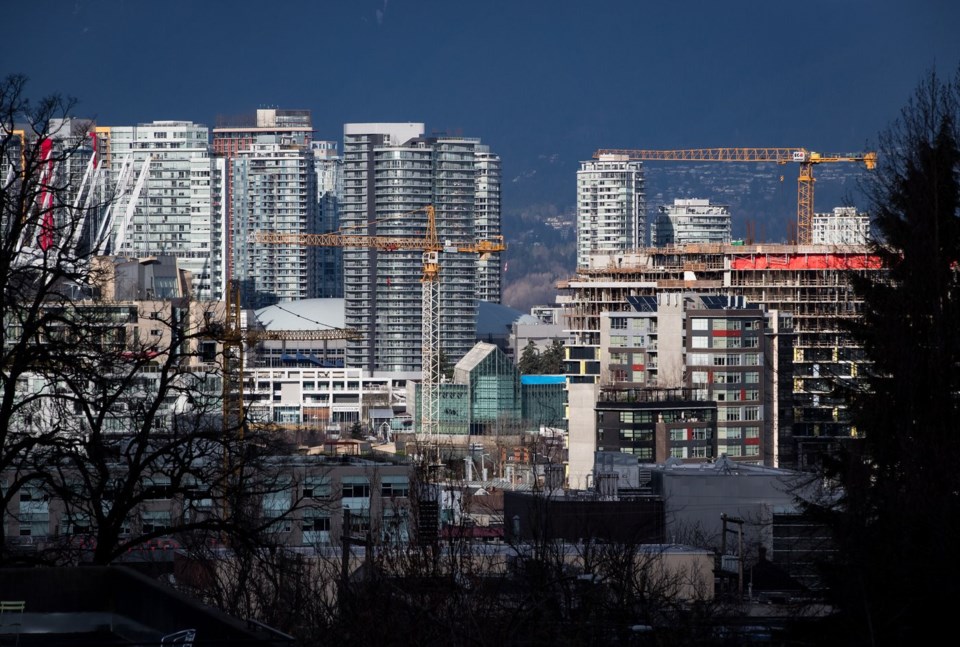VANCOUVER — The pace of rent increases in Metro Vancouver slowed last year compared with 2023 and the rental stock is growing, but there's a shortage of units for families, and the wait-list for social housing is getting longer, a new report shows.
The Metro Vancouver regional district released its annual report on housing data on Friday, which shows rent increases slowed to 4.5 per cent in 2024, down from 9.1 per cent the year before.
Rental construction was at a 20-year peak. There was a 35 per cent increase in housing starts and a 48 per cent increase in completions between 2015 and 2024. Purpose-built rentals accounted for 37 per cent of housing starts and 31 per cent of completions in 2024, the report said.
"However, more is needed to reach historical per capita construction rates and meet the demands of anticipated population growth," it said.
There is a particular need for family-sized rental units. Only 30 per cent of all purpose-built rental units in the region have two or more bedrooms, it said.
For almost a decade in the early 2000s, the report said rental starts and completions were down, resulting in pent-up demand.
The average cost of rent for purpose-built rentals in Metro Vancouver was $1,929 last year, rising to $2,541 for rental condominiums.
The average cost of renting a newly built unit in the region last year was $2,739, putting it 42.7 per cent higher than the average rent for an existing, already occupied unit.
The median rent in the region increased by 143 per cent between 2002 and 2024, while average wages in B.C. rose 93 per cent and inflation jumped by 58 per cent over the same time period, the report said.
While the pace has slowed, rents are expected to continue rising, it said.
Vacancy rates across Metro Vancouver increased to 1.6 per cent in 2024, up from 0.9 per cent in the previous two years.
But the district said in a statement that vacancy rates across the region remained "well below a healthy level" of at least three per cent. The social housing stock has increased by 5.8 per cent since 2022, and Vancouver had nearly half of the social housing units across the region.
But there was a 14 per cent increase in the number of households on the wait-list for social housing last year, surpassing 21,500. Seniors and families make up the largest share of households on the registry for BC Housing, the report said.
Meanwhile, the number of people experiencing homelessness in the region continues to rise, increasing by 33 per cent since 2020. There was a 122 per cent increase between 2005 and 2023, the district's report said.
Nearly 40 per cent of Metro Vancouver households are renters, and the report said the "trend toward renting continues."
The share of renters in the region increased to 38 per cent between 2016 and 2021, up from 36 per cent.
The shift toward renting is "especially pronounced" among younger households ranging in age from 25 to 44, the report noted.
Renters' median incomes in 2020 ranged from $51,600 in an area including the University of B.C. to a high of $135,000 in the Village of Lions Bay.
For homeowners, the report said median incomes varied from $78,500 in the same area including the university to $170,000 in the Village of Anmore.
This report by The Canadian Press was first published April 25, 2025.
Brenna Owen, The Canadian Press




